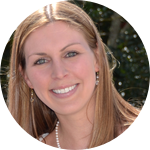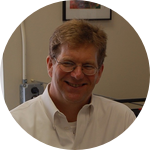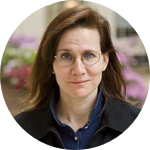About This Project
Long Island has relatively poor recycling rates. We want to relate local recycling to school recycling programs (since children affect household recycling). However, before we begin this work, we need to determine the scope of our issue. Nassau County has 56 distinct school districts (315 schools) and Suffolk County has 70 school districts (347 schools). We want to survey them to determine if schools recycle and if so the general scope of the programs.
Ask the Scientists
Join The DiscussionWhat is the context of this research?
Recycling is promoted effectively through education of school age children, who persuade their parents to participate (Maddox et al. 2012http://www.sciencedirect.com/s...; Nixon and Saphores 2011http://www.tandfonline.com/doi...). However, many schools in New York do not have comprehensive recycling programs; some have no program at all, although source-separation recycling is legally mandated. Long Island, New York (comprised of two counties, Nassau and Suffolk Counties) has been found to lag in recycling, despite having some of the best educated and wealthiest citizens in the US. Long Island recycled 24% in 2009 compared to the national estimate of 29%, and other prominent municipalities around the nation report rates exceeding 50% (Greene et al. 2011http://www.stonybrook.edu/est/...).
What is the significance of this project?
If we can determine the current scope of Long Island school recycling, we will be able to approach funders to complete a larger project: a thorough examination of recycling programs at schools on Long Island, under the principle it is difficult to effectively teach what you do not do yourself. We would like to determine the effectiveness of school programs, based on apparent diversion rates, materials separated, concordance with local laws, costs, and other relevant concerns that we may uncover as we research the issue. We intend to identify exemplary programs, and detail how their programs were established, managed, and administered (including contractual issues), so as to make it possible for others to emulate their success.
What are the goals of the project?
We will survey the 126 separate school districts (and, where there is no district-wide recycling program, individual schools) on Long Island to determine through self-reporting, whether or not the schools have a currently operating recycling program, and some general information regarding its scope. We will issue an interim report on the scope of Long Island school recycling.
This initial survey will support our applications to potential funding organizations (New York State Department of Education, New York State Department of Environmental Conservation, US Environmental Protection Agency, the National Science Foundation, and a number of private funding organizations) for the larger research program.
Budget
We will solicit undergraduate students in the Environmental Studies, Sustainability Studies, and Technological Systems Management majors to contact the school districts by telephone, to conduct a brief 8-question survey (students will be able to earn up to 3 credits for study participation). The results will be tabulated, and a brief report prepared by the Principal Investigators.
The Experiment platform is meant to provide some start-up money to support initial explorations of research topics. Therefore, we have requested nominal support (partial summer salary) for the two PIs. We will certainly spend more time on the project than would be indicated by the salary request.
The grant will be managed by the Research Foundation of SUNY as a typical Stony Brook research project.
Endorsed by
Meet the Team
Team Bio
David Tonjes is a research associate professor and Undergraduate Program Director in the Department of Technology and Society, Stony Brook University.
Kathy Araujo is an assistant professor in the Department of Technology and Society, Stony Brook University, and a visiting researcher at Brookhaven National Laboratory.
David J. Tonjes
I have worked on environmental issues for 25 years, beginning with a project to promote recycling and waste reduction in restaurants in 1990. My research centers on human activities that cause environmental impacts; most of my work has been in waste management. I work on describing the impacts from what we do, and to devise mitigation approaches to reduce the effects, or to eliminate them altogether. This work has resulted in me writing over 150 technical reports and papers. I have a PhD in Coastal Oceanography, from Stony Brook University, and also have advanced degrees in Computer Science and Technological Systems Management.
Kathleen Araujo
I work on aspects of systems change in energy, the environment, and innovation. My aims are to advance resilience and technology leadership through better practices and policy. Many of these topics can be found in my book entitled Low Carbon Energy Transitions: Turning Points in Policy and Innovation (Oxford University Press, forthcoming). In terms of roles, I am assistant professor in the Department of Technology and Society at Stony Brook University, where I teach on sustainable energy, decision-making, and science-technology policy. My work also includes research at Brookhaven National Laboratory, and serving as a book series editor for Routledge Studies in Energy Transitions.
Lab Notes
Nothing posted yet.
Additional Information
References
Greene, KL, O. Aphale, G. Ntshalintshali, P. Nayak, RL Swanson, and DJ Tonjes. 2011. Recycling on Long Island 2009: A Report on Municipal Programs in Nassau and Suffolk Counties. Waste Reduction and Management Institute, School of Marine and Atmospheric Sciences, Stony Brook University. 79 pp. + appendices. Available at: http://www.stonybrook.edu/est/research/FINAL%20Recycling%20Report%20(4-16-11)%20PDF.pdf
Maddox et al. 2011. The role of intergenerational influence in waste education programs: The THAW project. Waste Management 31(12):2590-2600. Available at: http://www.sciencedirect.com/science/article/pii/S0956053X11003308
Nixon & Saphores. 2010. Information and the decision to recycle: results from a survey of US households. Journal of Environmental Planning and Management 52(2):255-277. Abstract available at: http://www.tandfonline.com/doi./abs/10.1080/09640560802666610
Project Backers
- 0Backers
- 0%Funded
- $0Total Donations
- $0Average Donation


